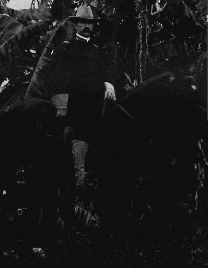Articles/Essays – Volume 04, No. 4
President David O. McKay: 1873-1970: Reflections on the Ministry of President David O. McKay
It is not difficult to identify the large difference that President McKay has made in the character and historical movement of the Church. I refer to the obvious fact that especially during the period of his presidency the Church has broken some of its parochial bonds and hopefully has begun to move toward universality. At least there are evidences that this is the case, and I doubt that anything as important as this has happened to the Church in the past century.
To conserve and strengthen its community character and at the same time overcome the limits which the community ideal inevitably imposes upon it is the most difficult task which confronts the Church. Here, it seems to me, is where President McKay exhibited his special strength as a leader.
The recent stirring of the Church toward universalism is represented not so much by its missionary expansion as by its building “foreign” temples, not by any change in doctrine, but by a change in disposition. The Church has always had quite extensive missions, but with the exception of the Polynesians served by the Hawaiian Temple, the converts came to America to become full-fledged Mormons. The doctrines taught and believed in foreign climes have been the same as those taught and believed in Utah, but a part of one’s conversion to the gospel, if he were a native of Europe, South America, or the Orient, was to learn to sing the songs of Zion, to join the “gathering” to Israel, and all too often to abandon precious values in his native culture to become a “Utah” Mormon. In our romantic and sentimental moments we are sometimes inordinately attached to the ways and attitudes of the past which identify our faith with Western American geography and social behavior. But I hope that a new era has begun in Mormonism, an era of higher and broader horizons, of a finer sense of the universal quality that properly belongs to religion.
A variety of social, political, and economic as well as religious forces are active in breaking through the parochial character of Mormonism. During the years of President McKay’s administration the Church was affected by the large social forces which followed upon the Second War: the remarkable increase in world trade, travel, and communications, the advances of technology, increasing industrialization, and the movement toward world unity symbolized by the United Nations or expressed in the ecumenical trends with in Christianity. I am afraid that much of the ecumenical spirit has passed us Mormons by, mainly because of our preoccupation with ourselves and the condition of our own faith. But that in this period the Church began to enlarge its perspectives on its place in the world, magnifying its vision, and moving, though slowly, toward an identification of itself with all men, was surely due in large part to President McKay’s own moral disposition and ideals, ideals which were inclusive rather than exclusive, which included rather than excluded his fellowmen. That from an early date he possessed a quality of world-mindedness not commonly found in the Church is known to all who have followed his ministry. It was a world-mindedness made possible not so much through his acquaintance with the world, which was extensive, as through his insight into the condition of the human soul.
I am concerned, of course, not with the recent rapid growth of the Church or its geographic extent, but rather with transformation in its character. The importance of our becoming a Church which in some way embraces the world rather than simply calls men “out of the world” to settle in the valleys of Western America, can best be seen by a glimpse or two of religion in the past. I have in mind the magnificent transformation of the religion of Israel when its prophets gained the vision of their God as the God of all mankind. Or Paul’s determination that Christianity was to be a religion of the world, a conviction which defeated those who would have kept it a sect of Judaism.
Universality as a religious ideal is possible only where there is an authentic conception of the reality of the individual, a genuine concern for his dignity and worth, and a full measure of human sympathy. It was not an accident that Jeremiah, who may have been the first of the prophets to declare unequivocally that there is only one God and that he is the God of all men and all nations, was also the first to clearly champion the moral freedom and responsibility of the individual. Nor was it an accident that in teaching that Christ came to save all men, Paul declared that each is precious in the sight of God. I believe that the universalism of President McKay, his identification with humanity, was grounded in his respect and concern for the individual, his reverence for the freedom and autonomy of the moral will, his sympathy and compassion for every person.
My point, then, is a very simple one: that President David O. McKay, whom we knew and loved as a charismatic leader and friend, combined the virtues of kindliness, compassion, love, and profound commitment to the moral and intellectual freedom of every person with a strong consciousness of the unity of mankind and the ideal possibilities of human brotherhood. We may hope that future historians will find that his ideal was in fact the beginning of a new era for the Church.
Sterling M. McMurrin
Salt Lake City, Utah


 Back to full Issue
Back to full Issue

